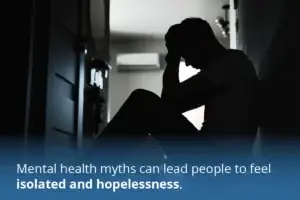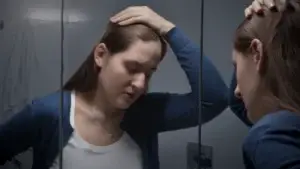Support for Mental Health at The Haven Detox

Dr. Rostislav Ignatov, MD
Chief Medical Officer
Understanding the Impact of Mental Health on Daily Life
Mental health plays a major role in how you think, feel, and handle everyday life, impacting everything from your relationships to work and even how you take care of yourself. Like physical health, mental health can change over time due to stress, life events, or even genetics. You might notice changes in your mood, thoughts, or behavior that don’t seem to go away, and that can be a sign that something needs attention.
Common Mental Health Disorders and Symptoms
Mental health conditions can make everyday activities challenging and impact a person’s overall well-being. Each disorder has its own set of symptoms and effects, but all can significantly disrupt daily life.
Depression: Persistent sadness or irritability, loss of interest, constant fatigue
Anxiety Disorder: Excessive worry, fear, or nervousness that interferes with daily life.
Bipolar Disorder: Extreme mood swings, including emotional highs (mania) and lows (depression).
Post-Traumatic Stress Disorder (PTSD): Flashbacks, anxiety, and emotional distress from witnessing a traumatic event
Borderline Personality Disorder: Intense emotions, unstable relationships, and impulsive behaviors
What You Should Know About Mental Health and Wellness
Your mental health affects everything — how you think, feel, and handle daily challenges. When stress, anxiety, or depression start to interfere with your well-being, it’s important to recognize the signs and reach out for help early.
Read the content below to learn how to protect your mental health, recognize when it’s time to seek support, and discover proven ways to restore balance and emotional wellness.

Other Categories Alcohol Use Treatment Drug Use Recovery Bullying is a pervasive issue that profoundly impacts mental health. The effects

Other Categories Alcohol Use Treatment Drug Use Recovery As our modern world becomes increasingly urbanized and technologically driven, more people

Other Categories Drug Use Treatment Alcohol Use Recovery Anxiety and depression dominate statistics of mental illness in the US. Each

Other Categories Drug Use Treatment Alcohol Use Recovery Group Activities for Managing Co-Occurring Disorders: A Holistic Approach to Recovery Co-occurring

Other Categories Alcohol Use Treatment Drug Use Recovery Emotional trauma is the lasting impact of overwhelming events or stress that

Other Categories Alcohol Use Treatment Drug Use Recovery Co-occurring disorders refer to when a person has both a mental health

Other Categories Alcohol Use Treatment Drug Use Recovery Mental illness myths persist in our society, and it is crucial to

Other Categories Alcohol Use Treatment Drug Use Recovery Bipolar II disorder is a mental health disorder characterized by periods of

Other Categories Alcohol Use Treatment Drug Use Recovery Anxiety disorders refer to conditions where individuals experience excessive worry, fear, or

Other Categories Alcohol Use Treatment Drug Use Recovery Borderline Personality Disorder (BPD) often presents in combination with other mental health

Other Categories Alcohol Use Treatment Drug Use Recovery Bipolar disorder often co-occurs with other mental health conditions and substance use

Is Bipolar Disorder Genetic? If you or someone you love has been diagnosed with bipolar disorder, you’ve probably wondered, “Is
Mental Health Treatment & Support Centers
It’s important to seek professional support when mental health challenges start to interfere with daily life. Conditions like anxiety, depression, or trauma can worsen without proper care — but the right treatment can make all the difference.
Working with licensed professionals provides a safe space to understand your symptoms, learn healthy coping strategies, and find lasting stability. Comprehensive mental health treatment often includes therapy, medication management, and holistic approaches that promote balance and emotional well-being — so you never have to face these challenges alone.
Get answers about your cost / coverage now.
Your information will be kept private
Have Questions? Let’s Talk!
Let’s talk about what’s going on — no judgment. (We’ve been there before ourselves). No one will know you inquired and there is no commitment to call.
24/7 Support
No Commitment
100% Private








